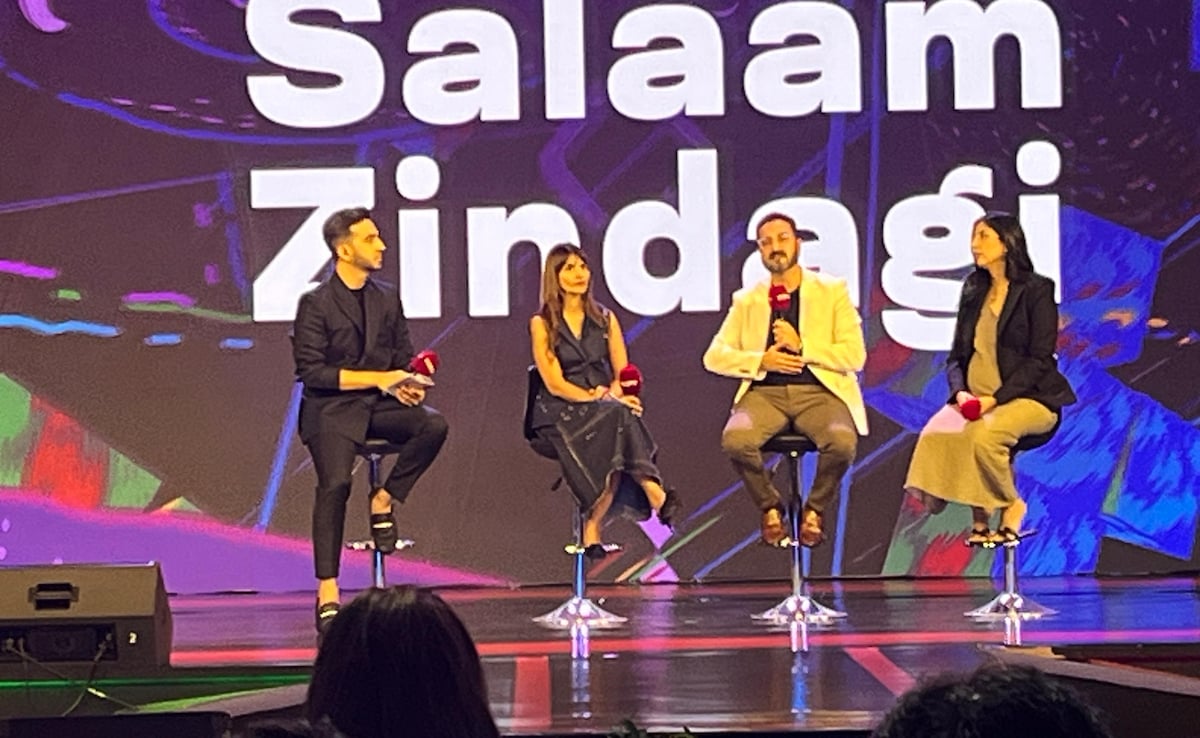
In today's high-speed, hyper-connected society, conversations around mental health have moved from hushed corners to centre stage. At NDTV Yuva's Mumbai edition, the panel titled Salaam Zindagi brought together three very different but complementary voices: Dr Zirak Marker, a seasoned psychiatrist; Simone Khambatta, a lifestyle creator; and Fatema Agarkar, an education-leader. Their collective aim is to peel back the layers of stress, expectation, identity and challenge that weigh especially heavily on Gen Z and younger adults in India.
Hosted Aayush Ailawadi, this discussion promised to tackle real issues, ranging from emotional well-being, anxiety, academic pressure and parenting, to how social media, family systems, or education settings contribute both to struggles and to solutions. And it delivered on that promise. Take a look at some of the highlights:
Mental Health Is On The Rise
"The biggest change I've seen in my practice after working for 23 years, is far more openness and acceptance of mental health," Dr Zirak Marker said, adding statistics from WHO about GenZ's mental health status. "I think with more acceptance, we're going to see far more people receiving the right help for mental health."
GenZ Has Tools For Mental Health
"The generation has a lot of exposure to AI, so the tools are accessible and it's easier," explained Fatema Agarkar while speaking on GenZ's mental health awareness and the role millennials are playing in shaping it. "But is the stigma really gone? That still needs to be worked on...that's work in progress. Are parents doing enough? The conversations that we have as adults need a definite change."

How Millennials Contributed To The Mental Health Movement
Further, highlighting how mental health is not a hush-hush topic anymore, Simone Khambatta said that millennials were woke enough to get the conversations on mental health started. "My generation is dealing with a lot, because we have been raised by the boomers in a very different way than we are raising our children, which is the Gen Alpha," Simone Khambatta shared. "Our generation, as millennials, were very woke about mental health. It's the millennials who really started the conversation. We're the ones who started acknowledging that anxiety and depression are real. Seek help, normalise going to a psychiatrist."
Overexposure To Social Media: Impacts Decoded
Fatema Agarkar pointed out that due to the social media overexposure, there are times when things get magnified into more than what it is. "A lot of youngsters out there assume that if I just talk about it and then I could get away from doing things [like going to a professional for help]," she explained, adding that parents also need to get help when they need it and it's the only way to understand the next generation's mental health concerns.
Dr Marker agreed, adding that, "I've always joked as a child psychiatrist that the kids don't need the help, it's the parents who do. The parents need to come in and get help from us." He also pointed out that a lot of us tend to use words like depression and suicidal feelings very loosely. This needs to be addressed too.
Simone Khambatta highlighted again that the generation which is overexposed is being brought up by a generation that is still not reaching out for timely help. "For my generation, honestly, I would much rather talk to a therapist when I have to deal with my child and get the correct guidance, and then deal with my child, instead of going to Google. And I feel like that's not just me, that's across the board."
In a cultural moment when mental health is being redefined, destigmatised, and reshaped by new narratives, this panel offered not only stories and insights but tools: how to build resilience, where to find community, and how to reclaim agency. Whether you're a student, a parent, a teacher, or simply someone trying to stay balanced, the Salaam Zindagi session offeredmore than empathy, it offered actionable hope.
Disclaimer: This content including advice provides generic information only. It is in no way a substitute for a qualified medical opinion. Always consult a specialist or your own doctor for more information. NDTV does not claim responsibility for this information.
Track Latest News Live on NDTV.com and get news updates from India and around the world

